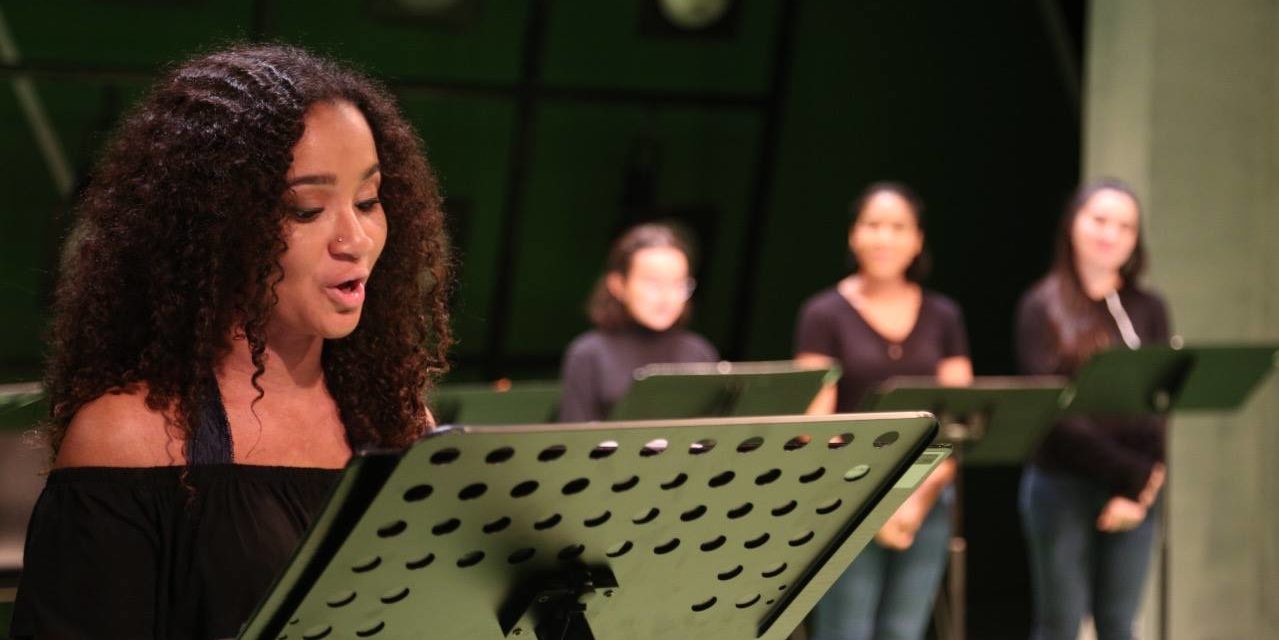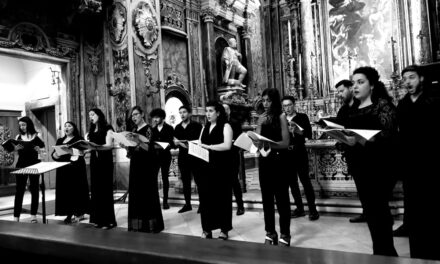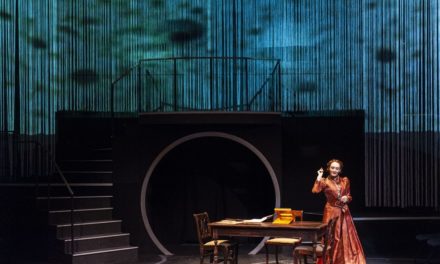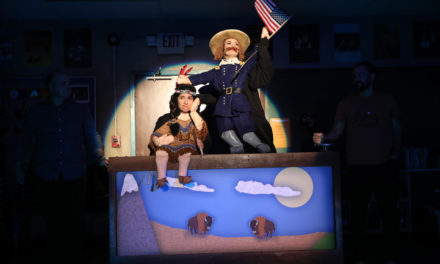When I founded the 50 Playwrights Project the last thing I wanted to do was produce live theatre. The project was intended to live in a virtual space and any growth would be digital. But, as I quickly learned, arts advocacy and art-making don’t always fit into neat, tidy boxes. Oftentimes they must be given space to grow organically and respond to the needs of the community that they are serving. And this is precisely how 50 Playwrights Project moved beyond a strictly digital world to produce live theatre.
Shortly after the current president rescinded DACA (Deferred Action for Childhood Arrivals), playwright Karen Zacarías announced on Facebook that she would waive the rights to Just Like Us for anyone that wanted to present a staged reading of the 2013 play about four young Latinas—two with US citizenship and two undocumented. She had hoped the play would become dated, yet here we are more than 16 years since the Dream Act was first introduced in Congress and the plight of more than 800,000 DREAMers remains in limbo. Zacarías received over 200 requests for the script, including myself. I genuinely had no intentions of producing a staged reading. I didn’t feel like I had the resources so instead, I sent the script to a few theatremakers in Houston and nothing happened.
Enter Rogue Productions. A few weeks after Zacarías’ post, Rachael Logue, Rogue’s co-artistic director, messaged me saying she wanted to talk about something. Why me? Well, Logue figured that of all the people she knew, I was most likely to have the script. When she and fellow Rogue co-artistic director Chelsea Ryan McCurdy asked me to co-produce, I immediately said yes. Even though I had little extra time and didn’t know what working with Rogue would look like, I knew this was something I had to do. As Houston is the fourth biggest city in the country and home to a substantial Latinx population, I strongly believed that Just Like Us was a story that local audiences needed to hear. And if we weren’t going to do it then it simply wasn’t going to happen. To make the event more meaningful, we decided to raise funds for DACA defense efforts through United We Dream and Hurricane Harvey first responders through Assist the Officer.
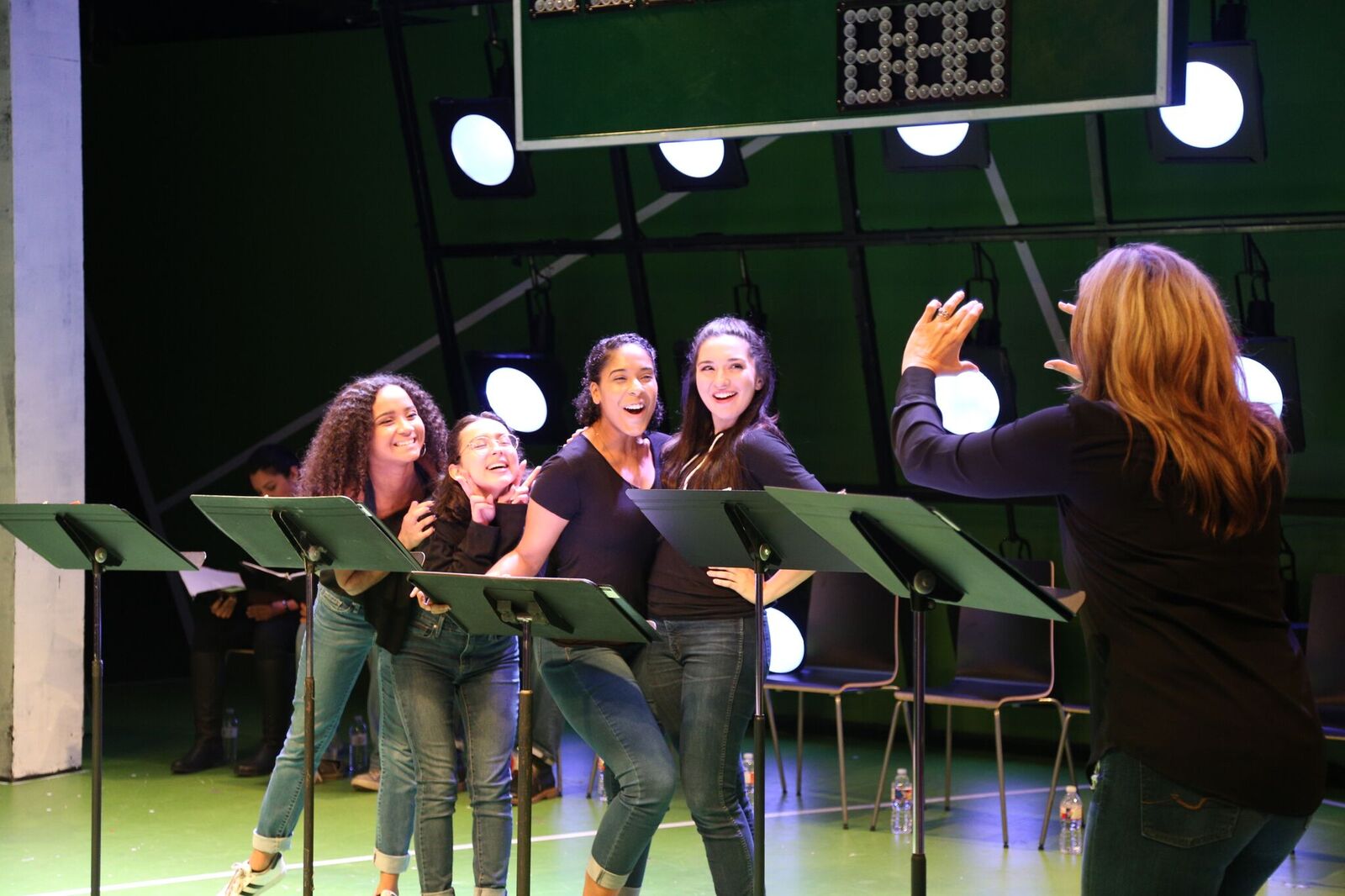
Vivi Collymore, Emily Mesa, Anna Maria Morris, Melissa Molano, and Courtney Lomelo in Just Like Us. Photo by Claire Logue.
Within a few days, Stages Repertory Theatre generously gave us the Yeager Theatre for a night. The Houston Arts Alliance gave us rehearsal space. We got printing donations and a beer sponsor. We quickly solicited the best actors we could find in Houston. We asked Kayla Boffone to direct. To my surprise, everyone who was available enthusiastically said yes. It was clear that everyone involved wanted to tell this story. Within minutes of our first rehearsal, Logue and I couldn’t stop giggling about how talented our cast was. We kept noting how we had never seen a play in Houston—not even a reading—that had 8 Latinx actors on stage.
On November 6, over 140 people attended our staged reading, not to mention the cast and crew involved in the event. Most notably, the vast majority of our audience was under 40 years old. Many high school and college students were in attendance. When Matt Wasson, reading stage directions, said “End of Play,” the audience response was more than generous. The energy in the room was palpable. This was clearly an event that needed to happen and everyone made apparent their support of the work.
Afterwards, several people asked me if we would be bringing the show to other places in Houston. One of my colleagues asked me if we could do a performance at the University of Houston. The following day I received an email from an educator who wanted information on how to get the play in Houston schools. I quickly connected her with Zacarías. This is just one story. Just Like Us opened doors to so many conversations and connections. It did just what art is supposed to do. It was a vehicle for social change.
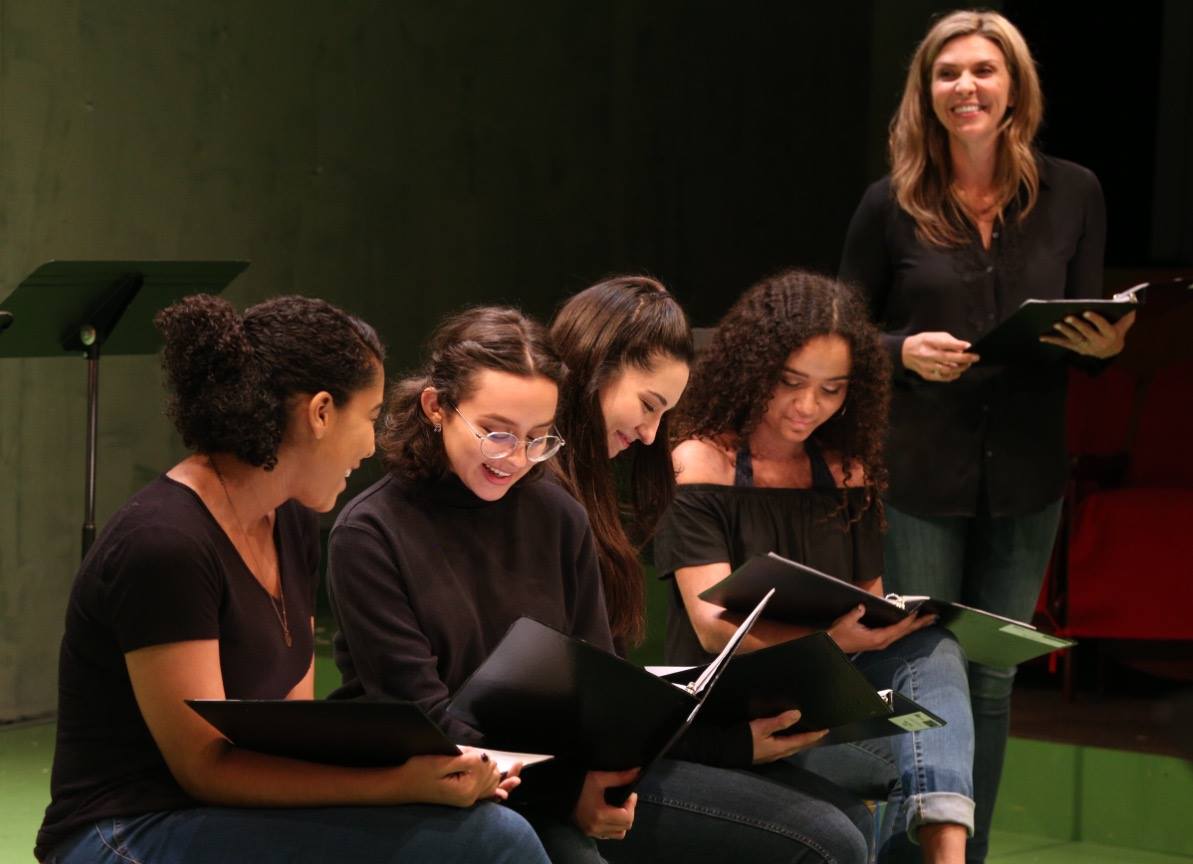
Anna Maria Morris, Emily Mesa, Melissa Molano, Vivi Collymore, and Courtney Lomelo in Just Like Us. Photo by Claire Logue.
Following the experience, I am inspired to continue the work. While the 50 Playwrights Project will continue to engage in digital advocacy and serve as an accessible space to learn more about contemporary, there is no reason that it can’t produce staged readings like Just Like Us and other events serving the Houston community. If I learned anything from the experience—besides the fact that Rachael Logue and Chelsea Ryan McCurdy are dream collaborators—it’s that I can’t limit the scope of my work. If 50 Playwrights Project is going to remain relevant then it must be nimble and ready to respond to the needs of the community. One thing is certain: I’m more than ready for the challenge.
This post was written by the author in their personal capacity.The opinions expressed in this article are the author’s own and do not reflect the view of The Theatre Times, their staff or collaborators.
This post was written by Trevor Boffone.
The views expressed here belong to the author and do not necessarily reflect our views and opinions.

